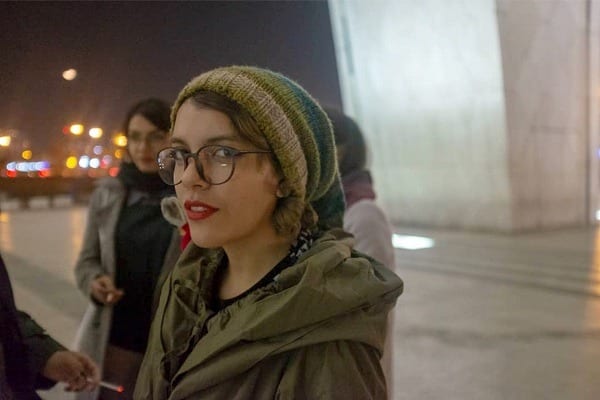Yasaman spoke of her hopes for a future when all women would have the freedom to choose what to wear. Shortly after, she was arrested and sentenced to 16 years in prison for “inciting and facilitating corruption and prostitution”.
In the past few years, a growing movement against forced veiling laws has emerged inside Iran, with women and girls performing courageous acts of defiance. Men and women who actively choose to wear hijab have joined too – because the movement is about choice: a woman’s right to choose what to wear without fear of harassment, violence, threats and imprisonment.
The strength of this movement has terrified the Iranian authorities, who have waged a sinister crackdown in response. Since January 2018, they have arrested at least 48 women’s rights defenders, including four men.
Since she was imprisoned, the world has rallied to support Yasaman, including almost 100,000 people who have signed Amnesty International Australia’s petition to have her released from prison.
Just recently, Amnesty learned that Branch 54 of the Appeals Court of Tehran reduced the sentences of women’s rights defenders like Yasman and her mother Monrieh Arabshahi to nine years and seven months imprisonment. Their sentences are now composed of five years and six months for “inciting and facilitating corruption and prostitution” through promoting “unveiling”, three years and six months for “gathering and colluding to commit crimes against national security” and seven months for “spreading propaganda against the system”. Under Iran’s sentencing guidelines, they have to serve the lengthiest single sentence imposed for the most serious charge, which is five years and six months for “inciting and facilitating corruption and prostitution” through promoting “unveiling”. Their lawyer has indicated that he will file a request for judicial review of their convictions and sentences.
Yasaman’s case has galvanised the support of people all around Australia and hundreds of people gathered at events all around the country to coincide with International Women’s Day to make origami flowers and lend their names to the petition demanding her freedom.
We must continue to stand with activists like Yasaman who fight for the most fundamental of rights for women all around the world.


